What kind of tea is considered "strong tea"? These 7 types of people should not drink
Tea is one of the most popular beverages and drinking tea has been around for thousands of years.
Some people like to drink strong tea, thinking that strong tea is rich and rich, and the taste is distinct; some people like light tea, thinking that light tea is fresh and elegant, which can not only quench thirst but also maintain health.
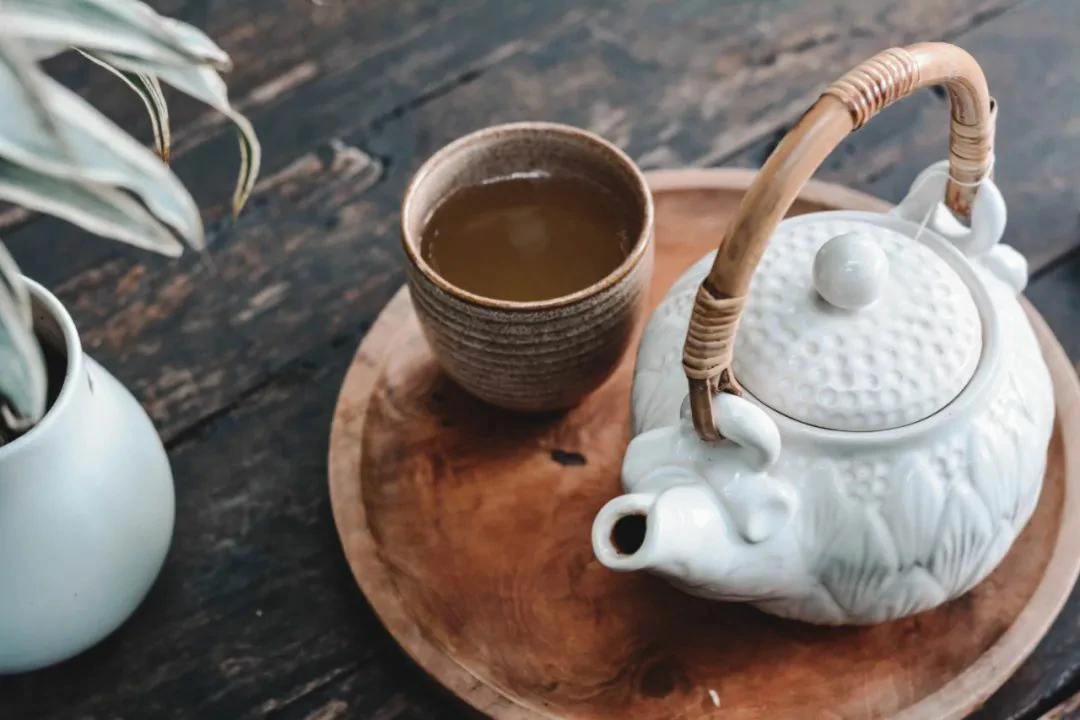
What is considered “strong tea”?
The main functional components in tea are tea polyphenols, caffeine, and theanine. Among them, tea polyphenols make tea astringent, caffeine brings a bitter taste to tea, and theanine makes tea taste fresher.
At present, there is no uniform definition of strong tea. When there are too many tea leaves, the bitterness of the tea soup will increase, the freshness will be relatively weakened, and the color of the tea soup will become stronger, which is often referred to as strong tea.
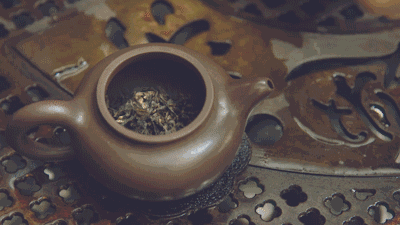
However, the strength of tea is related to personal taste and feeling, and there is no absolute measure.
Tea addicts who have been drinking tea for many years have become accustomed to the bitter taste of tea, and the strong tea in the eyes of ordinary people may not be strong for them.
Those who do not drink tea often or who are used to drinking weak tea will not be able to accept it if it is slightly thicker.
From a health point of view and taste, strong tea is suitable for tea lovers, and tea of suitable strength is suitable for most people.
If the tea can be brewed according to the best tea-water ratio of each type of tea, the color and aroma of the tea will be maximized.
The standard tea dosage for most famous teas (green tea, black tea, yellow tea, scented tea) is 1 gram of dry tea with 50 ml of water, that is, the ratio of tea to water is 1:50;
The ratio of tea to water for ordinary bulk tea (green tea, black tea, yellow tea, scented tea) is 1:75.
The amount of black tea, white tea, and oolong tea should be more. The tea-water ratio of dark tea is 1:501:30, the tea-water ratio of white tea is 1:251:20, and the tea-water ratio of oolong tea is 1: 15 or so.
The following categories of people should try to avoid drinking strong tea:
- Children and adolescents
The caffeine in strong tea will excite the central nervous system, shorten the child’s deep sleep time, and may affect the child’s growth and development.
- Women in special times
For women who are in the menstrual period, pregnancy, or breastfeeding period, drinking a lot of strong tea for a long time will hinder the absorption of iron and cause iron-deficiency anemia. Excessive intake of caffeine also affects the development of fetuses and infants.
- Those who are sensitive to caffeine
Such people should not only avoid strong tea, but also avoid tea as much as possible in the afternoon and evening, so as not to affect sleep.
- People with poor gastrointestinal function
Some people will feel uncomfortable in the stomach and intestines after drinking tea. The caffeine in tea can stimulate the gastrointestinal mucosa, promote the secretion of gastric acid, and aggravate the gastrointestinal discomfort.
- Patients with high uric acid or gout
Caffeine is a diuretic, and moderate drinking of weak tea in patients with high uric acid can help reduce uric acid. However, if you drink strong tea, caffeine will decompose and produce new uric acid after entering the human body, which will aggravate the disease.
- Drunk
Drinking strong tea after being drunk will increase the burden on the heart, and tea will accelerate the excretion of urine, so that the toxic acetaldehyde formed in the body is excreted from the kidneys before being decomposed, irritating the kidneys.
- Those who take certain drugs
Tea polyphenols are easy to interact with metal preparations to cause precipitation. When taking metal preparations such as calcium preparations, iron-containing blood supplements or iron-containing preparations, aluminum-containing preparations, cobalt preparations, silver preparations, etc., you should avoid drinking strong tea.
It is also not recommended to drink strong tea when taking hypnotic, sedative, antitussive drugs and enzyme preparations. Some Chinese herbal medicines, such as ephedra, Uncaria Chinensis, and Coptis Chinensis, should not be mixed with tea, and tea should not be drunk within 1 to 2 hours after taking the medicine.
4 kinds of common tea have “specialties”
Green tea, black tea, oolong tea, Pu’er tea… These common teas have different production processes, and each has its own health benefits.
Green tea
Polyphenolic compounds, such as catechins, are recognized as key components of green tea that are beneficial to health and have a variety of health care functions, including preventing cancer, improving cardiovascular health, and helping with weight loss.
Green tea is also the tea with the most types and richest content of vitamins. From the perspective of traditional Chinese medicine, green tea is slightly cold and helps to reduce the fire.
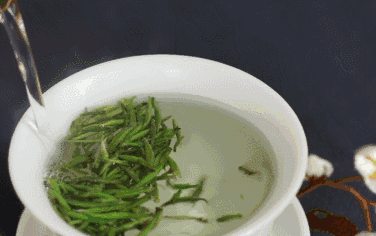
Black tea
Black tea belongs to fully fermented tea. During processing, tea polyphenols are oxidized into theaflavins and thearubigins, and most of the sugars are hydrolyzed into soluble sugars, resulting in the unique aroma and taste of black tea.
Black tea is rich in theaflavins. A large number of medical studies have shown that drinking black tea can help regulate the content of low-density lipoprotein and high-density lipoprotein in human arteries. Theaflavins can also resist oxidation, prevent chronic inflammation and obesity.
Oolong tea
Oolong tea is also known as green tea. In addition to catechins, tea polysaccharides, tea saponins, etc., oolong tea also contains some special functional ingredients.
For example, some oolong tea varieties are rich in “methylated catechins”, which can help anti-allergy, anti-inflammatory, antioxidant, protect liver cells, and assist in lowering blood pressure.
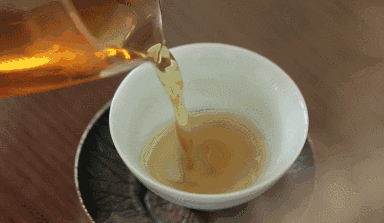
Dark tea
Dark tea is a post-fermented tea with rich minerals. Under the action of microorganisms, tea will undergo a series of complex chemical reactions to generate some functional components that are beneficial to the human body.
Pu-erh tea and Fu brick tea are representatives of different types of dark tea in my country, and their active ingredients are different, but they both help reduce lipids.
Choose tea according to your constitution
From the perspective of TCM health preservation, each person’s constitution is different, and the nature and taste of each type of tea are also different. According to the constitution and common manifestations in the “Classification and Determination of TCM Constitution”, the types of tea recommended drinking also have their emphasis.
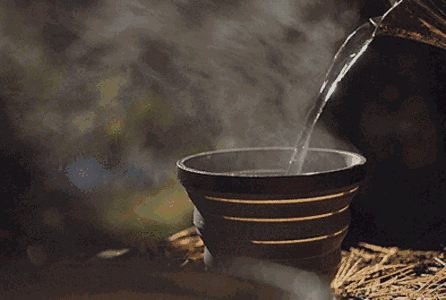
Peaceful constitution
The physique with normal functions is more coordinated, usually ruddy and energetic. You can drink all kinds of tea.
Qi deficiency constitution
It is manifested as being easily fatigued and weak, lack of breath and lazy words, or dizziness, and the complexion is a little yellow. It is recommended to drink Pu’er cooked tea, oolong tea, and eat it together with snacks made from soybeans, corn, peas, etc.
Yang deficiency constitution
Such people lack yang energy, fear the cold, and dare not eat cold food. People with this constitution can choose black tea, dark tea, and heavily fermented oolong tea (rock tea) to drink tea. Green tea, yellow tea, and Kuding tea are not recommended.
Yin deficiency constitution
Manifested as fever in the hands and feet, easy to dry mouth and throat, dry eyes, dry stool. Such people can drink more green tea, yellow tea, white tea, Kuding tea, lightly fermented oolong tea, less black tea, dark tea, and heavily fermented oolong tea.
Blood stasis constitution
It is manifested as dull complexion, dark tongue, or ecchymosis on the edge of the tongue, tongue tip, and tongue, often tingling in the body, and fish scale-like changes in the skin. If your tongue is pale and you are afraid of cold, you can drink black tea. If your tongue is red and your body is hot, you can drink green tea.
Phlegm-dampness constitution
Such people are mostly obese, with a plump and soft abdomen, prone to sweating, oily face, phlegm in the throat, and thick tongue coating. You can drink tangerine pucha, black tea, and dry ginger.
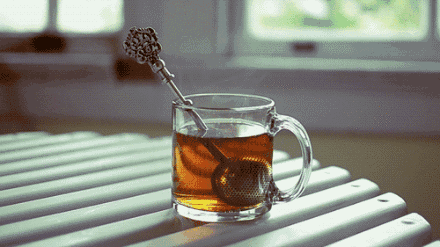
Hot and humid constitution
Such people often have dampness and heat inside, the face and nose tip are always shiny, prone to acne on the face, itchy skin, and often bad breath. It is advisable to drink more green tea, yellow tea, white tea, Kuding tea, and less black tea, dark tea, and heavily fermented oolong tea.
Qi stagnant constitution
Manifested as thin, sentimental, emotionally fragile, and often feel pain in the breasts and flanks. Try to drink less tea with more caffeine, suitable for drinking hawthorn tea, rose tea, chrysanthemum tea, bergamot tea, tangerine peel tea.
Generally speaking, you can choose according to the warm and cool bias of tea: Yin and cold constitution, such as people who are often afraid of cold, suitable for drinking warm tea; positive constitution, such as people who are prone to dryness and heat, suitable for drinking cold tea; normal constitution , yin and yang balance, drink tea according to the season